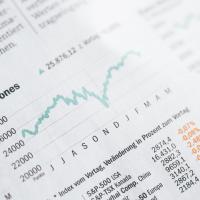Home > Investment Guide > Investing Basics
Tax Consequences: Tips for Finding Greater Tax Efficiency
Every earning man or woman is well aware of the tax consequences. Though, paying tax is a part of ongoing duty; you never know when or how you get buried under more and more tax bills. This is one of the reasons why earning section believes that the fruits of successful investing can only be achieved by managing the taxes properly. If maximizing the after-tax returns is your prime motto, here are some of the tax-efficient tips that would help you to upgrade your tax efficiency.
The Longer, the Better
Every smart person knows that long-term investing offers the fruit of favorable tax treatment on assets, which are held for a year or more before selling. At present, the highest tax on long-term gains is 15%. In 2013, it may rise up to 20 to 30%. However, gains offered on interim assets are taxed as normal income. The best thing is, there is a huge possibility of raise in interests as high as 35%.
Tax-Free Vs Tax-Deferred
While investing in money within your 401(k) retirement accounts or IRA, the tax reckoning day may get delayed, which can allow realized capital gains and dividends to reinvest on a tax platform. But, once you start withdrawing from the account after retirement, each distribution made from the Traditional IRA would get taxed as normal income and, when taken before age 59 ½, he/she would be charged with a 10 % penalty. That also incorporates any segment of the account, which resulted from reinvested assets gains. (Always remember that the tax on distributions from a Traditional IRA differs from a Roth IRA)
Taxed Stock Dividends
The first thing to know about stocks is, not all of them pay dividends. And, some of those that do, never come up with equivalent efficiency. The dividends of companies are termed as qualified dividends. This form of dividends is presently taxed at 15%, which is quite a favorable rate. Having stocks that offer qualified dividends out of a tax-benefited account and holding stocks that offer unqualified dividends in the tax-advantaged account may perk up your tax efficiency. If you want to make a visible distinction, consult your financial adviser.
Tax Effective Mutual Funds within Retirement Accounts
Since, mutual funds are necessary in distributing all capital gains embedded within their portfolios every year; from a tax management viewpoint, it gets lot easier to use them as a tax-benefited account. This way, the distributions can easily reinvest without undergoing tax upshots, until cashed out from the retirement program account. In the same way, the benefit of holding mutual funds shares in a tax-sheltered bank account is, there is no such requirement of establishing account or cost base for the losses and gains on individual lots when investments are being sold. Remember, that though it may look easier to work out your tax responsibilities, every withdrawal is taxed as normal earnings instead those of the lower capital gains rate. Therefore, it may not help, if you are stuck in a higher tax bracket while taking distributions.
About Author
Crystal is a blogger with great interest in writing on business and finance topics. While planning on her tax payment she referred to some very useful financial information here http://taxauditsolutions.ca/archives/964
More to Read:
Previous Posts:




